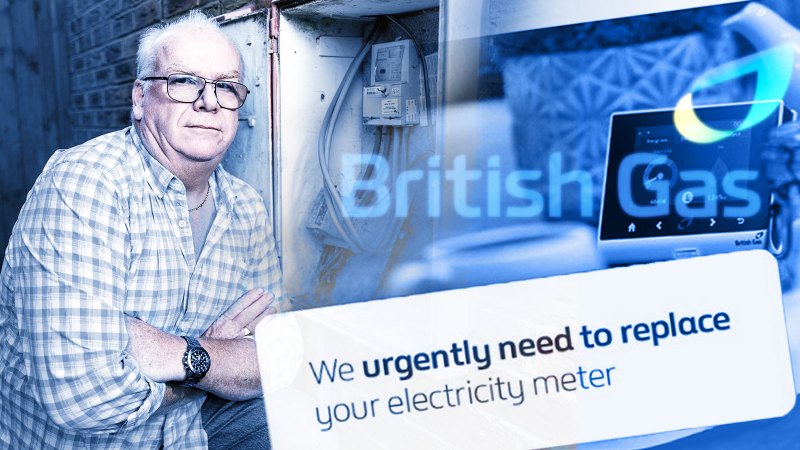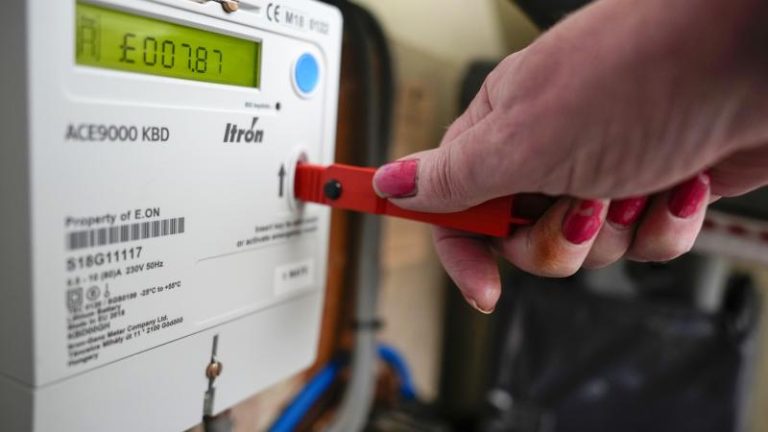‘Your old meter may catch fire’: British Gas investigated over marketing
British Gas is being investigated for sending “marketing” emails to customers warning that their old meters urgently need replacing because they may catch fire.
When one panicked customer asked for details, he was told it was just a new advertising strategy to persuade customers to switch to smart energy meters and he need not worry.
A complaint has been lodged by another customer with the Advertising Standards Authority (ASA), claiming that British Gas’s email was “misleading and irresponsible”. The ASA said it would not comment on an ongoing investigation.
The email is the latest tactic used by suppliers to persuade customers to upgrade from analogue to smart meters. The latter can cut supplier costs by automatically sending information about how much energy is used, without the need to chase customers for meter readings.
The government made it a requirement for suppliers to install a set number of smart meters each year, but customers do not have to accept one.
This means you may be bombarded with requests from your supplier for a smart meter to be installed but nobody can force you to have one, at least for now. Suppliers, on the other hand, may face fines for not fulfilling their installation targets.

A source at one of the big suppliers said that firms were increasingly desperate to persuade people to switch to smart meters and were now resorting to scare tactics.
Thousands of emails and letters are issued each day, warning that old-style meters have become obsolete, may catch fire or are unsafe, the source said.
The Energy Ombudsman said consumers were entitled to decline a meter replacement request and that suppliers “should not give the impression that an analogue meter must be replaced”.
In February, Kenneth Fairbairn, 60, a logistics manager from Rushton in Northamptonshire, received an email from British Gas that said: “We urgently need to replace your electricity meter.”
The email said the age of the meter can “cause serious problems — they can overheat, causing a risk of fire. We don’t want this to happen.”
He was urged to book an appointment and was told that an engineer would also replace his old gas meter at the same time. Once this was all done, the meters would be “safe”, the email said, and an engineer visit might be arranged anyway if he did not respond.
Fairbairn panicked and rang the number on the email. He said: “The tone of the letter was very alarming. We immediately contacted the number provided, but the person we spoke to said this was just a new marketing strategy and there was no need to worry. We felt we were being manipulated into doing something we didn’t want to do.”
He moved into his property 21 years ago when it was newly built and has had no problems with his meters.
Fairbairn said he was not interested in smart meters but was happy to have a replacement analogue one. The British Gas operative said this was not possible. In May he received the same marketing email from the supplier, which he has ignored.
After being contacted by The Times, British Gas said it would review the wording of its emails.
In June last year, The Times reported how David Mills, a retired journalist who lives near Bungay in Suffolk, received a letter from Eon saying his analogue electricity meter was no longer working “safely” and needed to be replaced with a smart meter.
When questioned by The Times, Eon said its meters were not unsafe and that its letters were not in response to any specific incident. It said there was no need for any undue concern among customers.
At the time, a British Gas representative said meters becoming unsafe was not something it recognised. It said it would replace meters that were deemed unsafe but that this was rare and not something it tracked.
When approached this week, British Gas said it was unaware of any meters catching fire and that the age of a meter did not necessarily mean there would be a serious problem. However, it said it was obliged to act prudently for its customers. It denied its emails were a marketing strategy.
It said meters have a certification date (basically a “best before” date), which is set by the Office for Product Safety and Standards, and that it is obliged to replace meters after this date. This can be up to 40 years, but varies depending on the type of meter.
The Department for Business and Trade, of which the Office for Product Safety and Standards is a part, said it was unaware of any specific safety issue relating to old analogue meters
Ofgem, the regulator, said it did not hold records for the number of energy meters catching fire and that its remit did not extend to health and safety.
In a statement, it said: “Ofgem considers safety to be an integral part of the smart meter rollout and an important consideration for existing smart and analogue meters. Energy suppliers are responsible for ensuring appropriate metering arrangements are in place for their customers.”
It added: “We expect all suppliers to communicate clearly with their customers, treating them fairly and not to use misleading communications.”
The ASA said adverts must not “cause fear or distress without a justifiable reason, or use shocking claims or images to attract attention. Ads mustn’t exaggerate potential risks from not buying their products or services, especially if targeting the elderly or vulnerable. They also need to ensure any claims made are backed up by sufficient evidence.”
The replacement of the old analogue energy meters has been beset by delays and cost overruns. It started in about 2014 and was due to be completed in 2021 but this has been pushed back to 2025. The costs, which are paid for by suppliers but ultimately feed through to customer bills, have increased from £11 billion to £13.5billion.
The latest official data showed that 30.3 million smart meters had been installed but there were 26.7 million analogue meters or smart meters that were not working properly.
This suggests more than 31,000 meters would need to be replaced or fixed every day from now until the end of 2025 for the industry to hit its target.
Many people have been put off adopting smart meters because many do not work properly or give people inaccurate readings. In one case a customer’s gas supply stopped when their smart gas meter ran out of battery. Old analogue meters do not have this problem.
Complaints received by the Energy Ombudsman about smart meters have soared from 0.86 complaints per 100,000 energy customers in the first three months of 2020 to 9.89 over the same period this year. The main complaints related to disputed account balances — the exact thing that smart meters were supposed to do away with.






